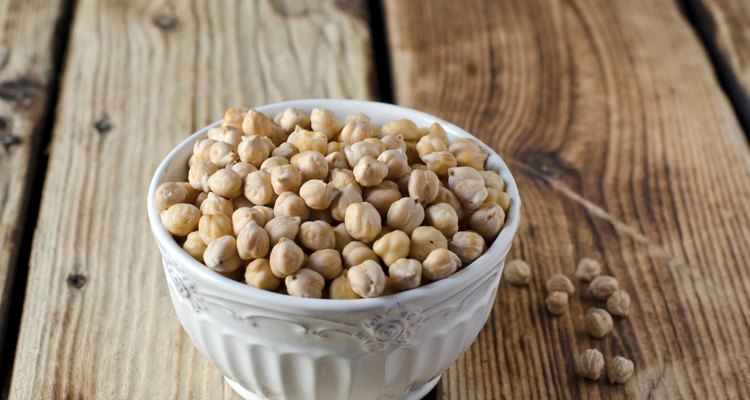
Teleginatania/iStock/Getty Images
The humble chickpea rarely gets the respect it deserves unless it's prepared from the dried beans. Preparing them yourself from soaking to finish gives you control of the tenderness and base flavor of the beans and none of the tinny, processed flavor you get from the canned variety. You can use stock, broth or filtered water to soak and cook dried chickpeas, which provides a cleaner taste and, if desired, a base flavor to build on in hummus, falafel and other dishes.
Soaking Flavoring Options
Soaking gives you the first chance to incorporate base flavors into chickpeas. Dried chickpeas absorb about twice their volume in liquid, so using stock or broth instead of water for soaking plumps these little legumes with flavor. Employ sodium-free broths or stocks so you can control the saltiness to taste when you cook the chickpeas. Chicken stock or broth, vegetable stock and filtered water all work as a soaking liquid.
Overnight or Quick-Soaking
The main difference between soaking overnight and quick soaking is heat. Quick soaking is more akin to precooking, but produces the essentially the same result. The only instance where you shouldn't quick-soak chickpeas is when you need them soaked but uncooked for dishes like falafel. Rinse the chickpeas and discard any you find damaged. To quick-soak chickpeas, add them to a large stockpot and cover them with 1 to 2 inches of cold stock, broth or filtered water. Boil the chickpeas for 5 minutes and set them aside for 1 hour. If you want to soak the chickpeas overnight, cover them with 1 to 2 inches of cold liquid and set them aside in the refrigerator.
When to Precook Chickpeas
You can cook chickpeas from start to finish in soups and stews that require 1 to 1 1/2 hours of simmering. If you want to use chickpeas in soups that only take a few minutes to prepare or you don't have time to babysit a soup for an hour while they finish cooking, you can cook them and add simply heat them through in the soup as needed. Chickpeas stay fresh in the refrigerator for 3 to 5 days when stored in an airtight container and for 10 to 12 months when stored in heavy-duty freezer bags in the freezer.
Basic Precooking Method
Rinse the chickpeas under cool running water after soaking them and add them to a pot. Simmer the chickpeas with 1 quart of salted cold water, stock or broth per cup until tender, 60 to 90 minutes. If you're using the chickpeas for hummus, add a teaspoon of baking soda to each quart of liquid; baking soda raises the pH of the cooking liquid, which helps make removing the chickpea skins easier. Drain the chickpeas in a colander. After the chickpeas cook, they can form the base of hummus or salads or become part of soups in the last 20 minutes of cooking.
Storing Chickpeas
Let the chickpeas cool to room temperature after cooking if you want to store them. Then, spread the chickpeas out in an even layer on paper towels and blot the moisture from them with a paper towel; let the chickpeas air dry for a few minutes. Place the chickpeas in an airtight container for refrigerator storage; if freezing, pack them in a single layer in a heavy-duty freezer bag and mark the date on them. Use refrigerated chickpeas within 3 to 5 days and frozen chickpeas within 10 to 12 months for best quality.
Related Articles
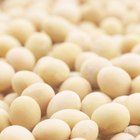
How to Rehydrate Chickpeas

How to Cook Dried Chickpeas Without a ...
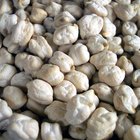
How to Freeze Garbanzo Beans
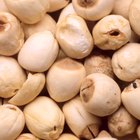
How to Soften Garbanzo Beans
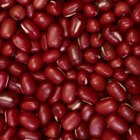
How to Soak Adzuki Beans
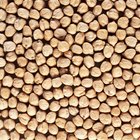
How to Cook With Chickpeas

Do You Need to Soak Lentils Before ...
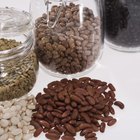
How to Freeze Cooked Dried Beans
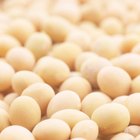
How to Cook Raw Chickpeas or Garbanzo ...

How to Cook White Beans

What if You Don't Cook Chickpeas Long ...
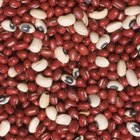
How to Convert Dried Beans to Cooked ...

How to Cook Beans

Cooking Edible Soybeans
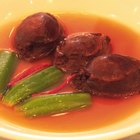
How to Cook Abalone
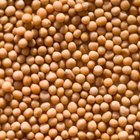
How to Cook Lentils and Split Peas

How to Cook String Beans
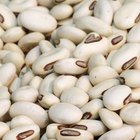
Substitute for Navy Beans
Easy Black Bean Soup Recipe

How to Cook Beans With Kombu Seaweed
References
- The Professional Chef 9th ed.; The Culinary Institute of America
- Still Tasty: Chickpeas/Garbanzos -- Fresh, Cooked
Writer Bio
A.J. Andrews' work has appeared in Food and Wine, Fricote and "BBC Good Food." He lives in Europe where he bakes with wild yeast, milks goats for cheese and prepares for the Court of Master Sommeliers level II exam. Andrews received formal training at Le Cordon Bleu.
Photo Credits
Teleginatania/iStock/Getty Images